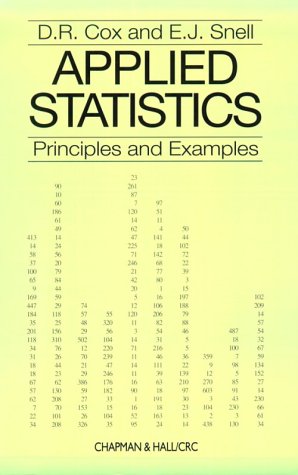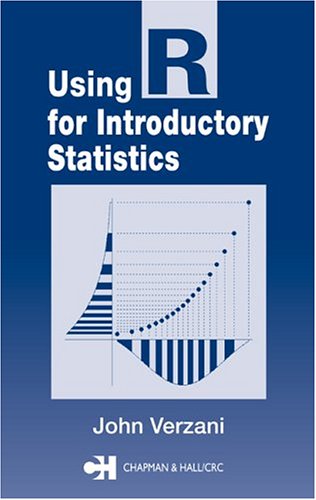

Back to Homepage of Anne Boomsma
Data Files and Case Studies for Applied Statistics
Internet Sites on Applied Statistics
Statistical Algorithms
Quotations on Statistics
Place and time
First semester, period two, week 45 – 51, 2008
Lectures: Tuesday's from 13.00 – 15.00 hours in room M.027 of the Munting Building
Computer exercises: Tuesday's from 15.00 – 17.00 hours in room H.0406 of the Heymans Building
Individual or small group meetings: Friday's from 12.00 – 13.00 hours in room M.0140 of the Munting Building
The first meeting is on Tuesday, November 4
Students
The course is offered to students of the Research Master Human Behaviour in
Social Contexts of the Faculty of Behavioural and Social
Sciences.
Purpose
To apply principles of statistical design and analysis to real data sets from both experimental and observational studies. The objectives of the course include reporting on scientific research in writing and oral presentation of its results.
Global content
The theoretical part of this course offers an in-depth review of some major themes of quantitative research.
a. From research questions to data analyses.
b. Experimental and observational studies.
c. The measurement of variables and looking at sample data.
d. The general linear model for the analysis of data.
e. Estimation and null hypothesis significance testing.
f. Aspects of internal and external validity.
Lectures and
literature
There will be seven lectures of two hours a week, immediately followed by two hours of practical work. A reader with selected articles and other material, and the R Tutorial for Applied Statistics, can be obtained at the Reproduction Service of the Faculty by November 3. Additional course material will be made available through Nestor. An updated overview of lectures and corresponding
literature is now available.
The books shown at the top of this page are from the following list:
The practice of statistical analysis
In the practical part of the course, participants will present a
personal research proposal, which is prepared well before the start of this course. The presentation includes a discussion of all aspects of the topics listed above, and beyond, for short: problem under study, research design, measurement and description of data, and
statistical data analysis. These analyses will be discussed and
elaborated, if necessary, during the course. A written report of
the student's personal analyses completes the practical part of Applied Statistics.
Software
In the lectures and during practical work the R software will be used, an open source environment for statistical computing. For an introduction we refer to
R at Artifical
Intelligence, University of Groningen, and more general to
The R Project for Statistical
Computing. See also J. Verzani's (2005) book Using R for
introductory statistics. London: Chapman & Hall/CRC;
applications with R corresponding to this book can be found at SimpleR
– Using R for introductory statistics. An overview of R commands for introductory statistics (linking Moore & McCabe's statistics book to that of Verzani) is listed in MoorR.
Exercises
The exercises are mainly related to the research question and the corresponding (personal) data set that each student has to deliver prior to the course by mid October. In addition, specific exercises for R software practicing will be provided.
Evaluation and exams
Weekly assignments and an oral presentation of the research project at the end of the course. The statistical
assignments aim at practical work, preferably with participants'
own research problems and data, and encompass training in
writing and presenting the research under study. The final result will be a concise written report of the personal research project, as practiced during the course. As for the literature, a multiple choice examination will be taken. The weights of the written report and the literature part are 2/3 and 1/3, respectively. For each part the score must be at least a six.
The first exam is on Tuesday, January 13, 2009, from 09.00 – 11.00 hours in room M.061 of the Munting Building. A second opportunity is offered on Tuesday, February 3, 2009, from 09.00 – 11.00 hours in room M.0127 of the Munting Building.
Credit points
The
number of credit points to be obtained equals five EC.
Questions and
remarks
For questions and remarks feel free to contact the lecturers at Grote Rozenstraat 15:\ Marijtje van Duijn, room 227, telephone (363)6195, e-mail address m.a.j.van.duijn@rug.nl, and Anne Boomsma, room 221, telephone (363)6187, e-mail a.boomsma@rug.nl.
Goto top
Back to Homepage of Anne Boomsma